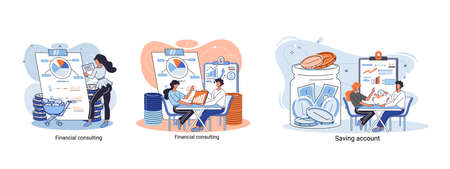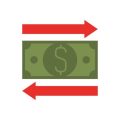1. Overview of Renting vs. Buying a Home
When it comes to finding a place to live in the United States, one of the biggest financial decisions youll face is whether to rent or buy a home. Each option comes with its own set of advantages, challenges, and lifestyle impacts. Understanding these key differences is essential before making your choice.
Lifestyle Considerations
Renting typically offers more flexibility. Its ideal for people who might need to move for work, arent ready to settle down, or want less responsibility for home repairs and maintenance. On the other hand, buying is often seen as a long-term commitment. Homeownership can provide stability and the freedom to customize your living space, but it also comes with additional responsibilities like property taxes, maintenance, and homeowners insurance.
Market Trends
The U.S. housing market can change rapidly based on economic conditions, interest rates, and regional demand. Recently, rising home prices and higher mortgage rates have made buying a home more challenging for many Americans, while renting has become increasingly popular in urban areas where job opportunities are concentrated. However, rental prices have also increased in many cities due to high demand.
Key Differences: Renting vs. Buying
| Renting | Buying | |
|---|---|---|
| Upfront Costs | Security deposit (usually 1-2 months rent), application fees | Down payment (often 3-20% of purchase price), closing costs |
| Monthly Payments | Rent payments, possibly utilities | Mortgage payments, property taxes, insurance, HOA fees (if applicable) |
| Maintenance & Repairs | Landlord responsibility in most cases | Homeowners responsibility |
| Flexibility to Move | Easier—typically requires notice per lease agreement | Harder—requires selling the home or renting it out if you move |
| Building Equity | No equity built from rent payments | Pays down mortgage over time; potential for property value appreciation |
| Personalization & Renovation | Limited—must follow landlord rules | Unlimited—you can renovate or modify your home as desired (within local codes) |
Summary of Key Points:
- Renting: Offers flexibility and fewer responsibilities but does not build equity.
- Buying: Requires a bigger initial investment and commitment but may lead to long-term financial benefits and personal freedom in your living space.
- The right choice depends on your finances, career plans, lifestyle preferences, and the current real estate market in your area.
2. Upfront and Ongoing Costs
Initial Costs: Down Payments vs. Security Deposits
When deciding between renting and buying a home in the United States, one of the first things to consider is how much money you need to get started. For renters, the main upfront cost is usually a security deposit, which typically equals one month’s rent. Buyers, on the other hand, face a much larger initial expense: the down payment. This is often around 20% of the home’s purchase price, but it can vary depending on your mortgage type and lender requirements.
| Cost Type | Renting | Buying |
|---|---|---|
| Security Deposit | 1 month’s rent (usually refundable) | N/A |
| Down Payment | N/A | Typically 5%-20% of purchase price |
| Application Fees & Other Upfront Costs | $30–$100 (application fee), possible pet deposit | $2,000–$4,000+ (closing costs: inspection, appraisal, etc.) |
Ongoing Monthly Expenses: Comparing Regular Payments
The ongoing costs of renting versus owning are also very different. Renters make a single monthly rent payment to their landlord. Homeowners pay a mortgage each month, but that’s just one part of the picture—they also have to budget for property taxes, homeowner’s insurance, and often private mortgage insurance (PMI) if their down payment is less than 20%. Plus, all maintenance and repair costs fall on the homeowner’s shoulders.
| Expense Type | Renting | Buying |
|---|---|---|
| Main Monthly Payment | Rent payment (fixed by lease) | Mortgage payment (principal + interest) |
| Insurance | Renters insurance ($15–$30/month) | Homeowner’s insurance ($100+/month) |
| Property Taxes | N/A (landlord pays) | $150–$500+/month (varies by area and home value) |
| Maintenance & Repairs | N/A (landlord responsible) | $100–$400/month average (homeowner responsible) |
| P.M.I. (if applicable) | N/A | $50–$200/month (if down payment < 20%) |
| Utilities & HOA Fees* | Might be included or separate, varies by rental agreement | User pays all utilities; HOA fees apply in some communities ($100–$400/month) |
*Note:
*Some rentals include water or trash in the rent; homeowners pay all utility bills directly. HOA fees only apply in certain neighborhoods or condo buildings.
Summary of Cash Flow Differences Month-to-Month
If you’re renting, your regular expenses are usually more predictable—you pay your rent and maybe some utilities or renter’s insurance. As a homeowner, though, your monthly spending can fluctuate due to unexpected repairs or changes in property taxes and insurance rates. It’s important to weigh these ongoing financial responsibilities before making a decision about whether to rent or buy a home in the U.S.

3. Building Equity versus Flexibility
When deciding between renting and buying a home in the United States, one of the key considerations is whether you want to build equity or maintain flexibility. Let’s break down what each option means financially and how it can impact your lifestyle.
Building Equity Through Homeownership
Buying a home means you’re investing in an asset that can grow in value over time. Each mortgage payment you make goes toward building equity—essentially, your ownership stake in the property. As home prices increase, so does your net worth if you own the home. Over years, this can become a significant financial resource, especially if you decide to sell or tap into your home’s value through refinancing or a home equity loan.
Example: How Equity Builds Over Time
| Year | Equity Built (Assuming 5% Down Payment) | Home Value Appreciation (3% Annually) |
|---|---|---|
| 1 | $15,000 | $315,000 |
| 5 | $35,000 | $364,652 |
| 10 | $60,000 | $424,785 |
| 20 | $120,000+ | $601,032+ |
Assumes purchase price of $300,000 and standard mortgage payments.
The Flexibility of Renting
On the other hand, renting offers much more flexibility. You’re not tied down by a mortgage or responsible for major repairs and property taxes. This can be ideal if you expect to move for work, want to try different neighborhoods before settling down, or simply don’t want the responsibilities that come with owning a home.
Comparison: Equity vs Flexibility at a Glance
| Buying a Home | Renting a Home | |
|---|---|---|
| Builds Equity? | Yes – through mortgage payments and appreciation | No – monthly payments go to landlord |
| Flexibility to Move? | Limited – selling takes time & costs money | High – easier to relocate after lease ends |
| Responsibility for Repairs? | Owner pays for all maintenance & repairs | Landlord usually handles major repairs |
| Potential for Investment Growth? | Yes – if property value increases over time | No direct growth from rental payments |
| Upfront Costs? | High – down payment & closing costs required | Lower – typically just first month’s rent & deposit |
Which Is Right for You?
Your decision may depend on your personal goals. If you value building long-term wealth and stability, owning could be a smart move. But if you prioritize flexibility or anticipate changes in your life situation soon, renting might be the better option for now.
4. Impact on Personal Finances and Credit
How Renting and Buying Affect Your Credit Score
In the United States, your credit score is a big deal when it comes to major financial decisions. Renting and buying a home can both have an impact on your credit, but in different ways.
| Renting | Buying | |
|---|---|---|
| Credit Check | Landlords may check your credit before approving your rental application, but paying rent usually doesn’t help build your credit unless reported to credit bureaus. | Your mortgage payments are reported to credit bureaus. Making payments on time can boost your score, while missing payments can hurt it. |
| Monthly Payments | Rent payments typically do not show up on your credit report, unless you use special services that report them. | Every mortgage payment helps establish your track record with large loans, which can improve your credit mix and overall score. |
| Debt-to-Income Ratio | No new debt is added by renting, so your ratio stays the same. | A mortgage increases your debt load, which could impact your ability to qualify for future loans or credit cards in the short term. |
Financial Stability: Monthly Costs and Flexibility
Renting gives you more flexibility because you’re not locked into a long-term commitment. If you need to move for work or personal reasons, ending a lease is generally easier than selling a house. Also, renters are not responsible for property taxes, homeowner’s insurance, or maintenance costs—these are taken care of by the landlord.
On the other hand, homeowners face steady monthly mortgage payments (which may change if you have an adjustable-rate mortgage), plus additional expenses like property taxes, homeowners’ insurance, and repairs. While these costs add up, owning a home can also act as forced savings by building equity over time.
Monthly Expense Comparison Example
| Expense Type | Renting ($/month) | Buying ($/month) |
|---|---|---|
| Monthly Payment | $1,800 (rent) | $1,700 (mortgage) |
| Property Taxes & Insurance | $0 | $400 |
| Maintenance/Repairs | $0 (landlord pays) | $200 (average) |
| Total Estimated Monthly Cost | $1,800 | $2,300 |
*Numbers above are averages and will vary by location and property value.
Building Long-Term Wealth: Equity vs. No Equity
The biggest difference between renting and buying is the potential for building long-term wealth. When you buy a home and make mortgage payments, you slowly build equity—the part of the house you actually own outright. Over time, as home values increase (which is common in many U.S. markets), this equity can grow significantly. You may be able to tap into this equity later through a home equity loan or line of credit, or cash out when you sell the property.
If you rent, you don’t build any equity; your monthly rent payment goes to your landlord. However, you do keep more financial flexibility and avoid the risk of losing money if home values drop or expensive repairs come up unexpectedly.
5. Tax Benefits and Other Considerations
Overview of Tax Advantages for Homeowners
One of the biggest financial perks of owning a home in the United States is the potential for tax benefits. Homeowners can take advantage of several deductions and credits that renters simply don’t have access to. Here are some key tax advantages:
| Benefit | Description |
|---|---|
| Mortgage Interest Deduction | You may be able to deduct interest paid on your mortgage, which can significantly reduce your taxable income. |
| Property Tax Deduction | Homeowners can deduct property taxes paid to local governments, up to certain limits. |
| Capital Gains Exclusion | If you sell your primary residence, you may exclude up to $250,000 (or $500,000 for married couples) of capital gains from your income, if you meet ownership and residency requirements. |
| Mortgage Insurance Premium Deduction | Some homeowners can deduct premiums paid for private mortgage insurance (PMI), though this benefit may phase out based on income. |
Other Factors to Consider Beyond Taxes
While tax benefits are attractive, they’re just one part of the picture when deciding whether to rent or buy. Here are some other important considerations:
- Local Market Conditions: Real estate markets vary greatly by region. In some cities, buying might make more sense financially; in others, renting could be more affordable.
- Personal Financial Goals: Think about your long-term plans. If you expect to move within a few years, renting might offer more flexibility. If you plan to settle down, buying could help build equity over time.
- Upfront and Ongoing Costs: Buying a home requires a down payment, closing costs, and ongoing expenses like maintenance and repairs. Renters typically only pay a security deposit and monthly rent.
- Lifestyle Preferences: Homeownership comes with responsibilities like yard work and repairs. Renting usually means less maintenance but also less control over your living space.
Quick Comparison Table: Renting vs. Buying Considerations
| Factor | Renting | Buying |
|---|---|---|
| Upfront Costs | Low (security deposit) | High (down payment & closing costs) |
| Flexibility | High (easy to move) | Low (harder to sell quickly) |
| Maintenance Responsibility | Landlord’s responsibility | Your responsibility |
| Tax Benefits | No major benefits | Several deductions possible |
| Pride of Ownership/Control | Limited customization allowed | Total control over property |


